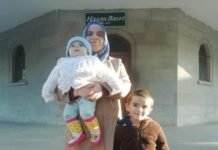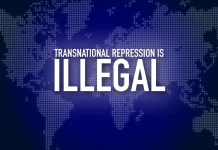The European Court of Human Rights (ECtHR) has declined to consider a complaint regarding curfew incidents in Cizre in which 137 people were killed during counterterrorism operations in southeastern Turkey in 2015-2016 on the grounds that domestic legal remedies have not yet been exhausted.
In February 2018, a report by scientists from the Vaudois University Hospital Center (CHUV) in Switzerland showed that residents who took shelter in the basement of a building in a neighborhood of Turkey’s southeastern Cizre district during the curfews were killed by gunshots and their bodies burned.
According to a story on the Dicle news agency website, forensic medicine scientists at CHUV recently published a report following research on the remains of Berjin Demirkaya, who was trapped in the basement of a residential building in the Cudi neighborhood of Şırnak’s Cizre district. The report said she was killed before her body was burned.
After Turkey’s local authorities lifted the curfew in February 2017, family members found several burned body parts in the basement and claimed that civilians were killed by Turkish military forces and then burned to destroy the evidence.
The Turkish army and police carried out a wide-ranging operation on Feb. 7, 2016 when they raided the building in Cudi, where dozens of wounded people were sheltering. According to news reports on Turkish TV, more than 60 people were trapped and may have been killed during the operation.
According to a report by Turkish human rights organization Mazlumder following the incident, more than 200 people were killed and over 10,000 houses were destroyed in Cizre alone during curfews that were imposed after July 2015.
During months-long curfews in Cizre’s Sur, Cudi and Nur neighborhoods, thousands of people, including children, women and elderly people, were trapped in their homes.
“Cizre witnessed unprecedented destruction following clashes which took place during a curfew lasting over 78 days, and unlike in curfews before, the curfew in Cizre saw mass killings,” Mazlumder said.
Following the collapse of a settlement process for the Kurdish issue in Turkey in July 2015, there were repeated clashes between security forces and outlawed Kurdistan Workers’ Party (PKK) members in southeastern provinces that resulted in nearly 200,000 locals leaving their homes due to fighting and curfews.
Turkish authorities imposed curfews in southeastern towns and districts to flush PKK militants from urban areas in Turkey’s mostly Kurdish Southeast starting in July 2015. More than 600 Turkish security forces were killed during the clashes.
Last June, a statement by the Council of Europe (CoE) revealed that the CoE and ECtHR still put credence in remedies such as the right to file individual applications with the Turkish Constitutional Court (AYM), which is under the strict control of President Recep Tayyip Erdoğan, who has undermined judicial independence and the rule of law in Turkey.
“The Council of Europe is aware of a common perception among NGOs that the ECtHR is not giving adequate attention to human rights issues in Turkey, but believes this is based on a lack of information and misconceptions. The Council of Europe [emphasises] … the importance of … the principle of subsidiarity – in particular Article 35 §1 of the European Convention on Human Rights, which stipulates that the ECtHR may only deal with cases after all national legal remedies have been exhausted,” the statement read. (SCF with turkishminute.com)














